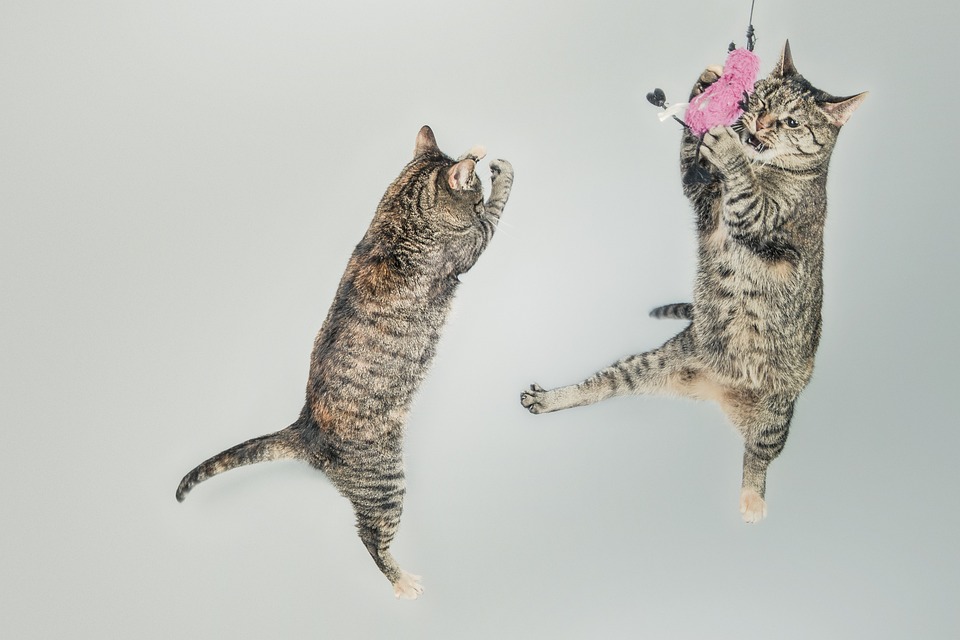Understanding Cat Vaccinations: What Every Pet Owner Should Know
Introduction:
Cat vaccinations are an essential aspect of responsible pet ownership. They help protect cats from various diseases and ensure their overall health and well-being. Understanding the importance of vaccinations, how they work, and the significance of regular veterinary care is crucial for every cat owner.
Why are cat vaccinations important?
Cat vaccinations are important because they prevent the spread of potentially deadly diseases. Vaccinations stimulate a cat’s immune system to produce antibodies that fight off specific viruses or bacteria. By doing so, vaccinations help prevent illness and reduce the severity of diseases if a cat does become infected.
How do vaccinations work?
Vaccinations work by exposing a cat’s immune system to a harmless form of a disease-causing agent, such as a weakened virus or a part of the bacteria. This exposure triggers an immune response, leading to the production of antibodies that recognize and attack the specific disease-causing agent. If the cat is later exposed to the actual disease, their immune system is prepared to fight it off effectively.
The importance of regular veterinary care
Regular veterinary care is essential for maintaining a cat’s health and ensuring timely vaccinations. Veterinarians play a crucial role in assessing a cat’s overall health, administering vaccinations, and providing guidance on preventive care. They can also tailor vaccination plans based on a cat’s individual needs and lifestyle.
Core Vaccinations for Cats:
1. Feline Viral Rhinotracheitis (FVR): FVR is a highly contagious respiratory disease caused by the feline herpesvirus. Symptoms include sneezing, nasal discharge, and eye infections.
2. Calicivirus (C): Calicivirus causes respiratory and oral diseases in cats. It can lead to symptoms like fever, ulcers in the mouth, and limping syndrome.
3. Feline Panleukopenia (FP): Also known as feline distemper, FP is a highly contagious and often fatal disease that affects a cat’s gastrointestinal system, bone marrow, and immune system.
4. Rabies: Rabies is a viral disease that affects the central nervous system. It is fatal and can be transmitted to humans. Vaccination against rabies is required by law in many jurisdictions.
Non-Core Vaccinations for Cats:
1. Feline Leukemia Virus (FeLV): FeLV weakens a cat’s immune system and can lead to various diseases, including anemia, lymphoma, and respiratory infections.
2. Feline Immunodeficiency Virus (FIV): FIV weakens a cat’s immune system and can lead to opportunistic infections and diseases.
3. Chlamydophila felis: Chlamydophila felis is a bacterial infection that causes conjunctivitis and respiratory disease in cats.
4. Bordetella bronchiseptica: Bordetella bronchiseptica is a bacterial infection that causes respiratory disease, commonly known as kennel cough, in cats.
Vaccination Schedule for Cats:
– Kitten vaccinations: Kittens typically receive a series of vaccinations starting at around 6-8 weeks of age. These vaccinations are given in multiple doses, usually 3-4 weeks apart, to ensure proper immune response.
– Adult cat vaccinations: Adult cats require booster shots to maintain immunity. The frequency of these boosters depends on the vaccine and the cat’s lifestyle.
Common Concerns and FAQs:
1. Are cat vaccinations necessary if my cat is an indoor-only pet? Yes, even indoor cats can be exposed to diseases through contact with other animals, insects, or humans. Vaccinations are necessary to protect them from potential risks.
2. Are vaccinations safe for my cat? Vaccinations are generally safe, but mild side effects can occur. Serious adverse reactions are rare. It is essential to discuss any concerns with a veterinarian.
3. Can my cat have an adverse reaction to vaccinations? Adverse reactions are possible but rare. Signs may include swelling, fever, lethargy, or loss of appetite. Contact a veterinarian if you notice any unusual symptoms.
4. What if my cat has existing health conditions or is on medication? It is crucial to inform the veterinarian about any existing health conditions or medications your cat is on. They can determine the appropriate vaccination plan based on your cat’s specific needs.
5. Can my cat be vaccinated if she is pregnant or nursing? It is generally not recommended to vaccinate pregnant or nursing cats. Consult with a veterinarian for guidance on the best course of action.
6. Are there any side effects of vaccinations? Vaccines can cause mild side effects like soreness, swelling, or lethargy. Serious side effects are rare. Contact a veterinarian if you have concerns.
7. What if I missed a vaccination appointment? Contact your veterinarian to reschedule the missed appointment. It is important to stay on schedule to ensure your cat’s optimal protection.
8. Can my cat receive vaccinations if she is already sick? Vaccinations are generally not recommended for sick cats. Consult with a veterinarian to determine the best course of action based on your cat’s health condition.
9. Are there any alternatives to traditional vaccinations? Some veterinarians may offer alternative vaccination protocols, such as titer testing, to assess a cat’s immunity. Discuss these options with your veterinarian.
10. Can my cat’s vaccination schedule be customized based on her lifestyle? Yes, vaccination schedules can be tailored to a cat’s lifestyle and potential exposure risks. Consult with a veterinarian to create a personalized vaccination plan.
Conclusion:
Understanding cat vaccinations is crucial for every pet owner. Vaccinations play a vital role in preventing diseases and keeping cats healthy. Consult with a veterinarian to determine the appropriate vaccination schedule and discuss any concerns or questions you may have. Remember, regular veterinary check-ups are essential for optimal cat health and well-being.








